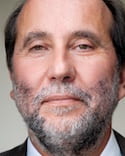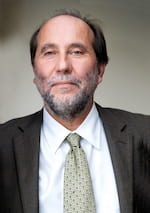NEWS RELEASE
Jeff Falk
713-348-6775
jfalk@rice.edu
Mike Williams
713-348-6728
mikewilliams@rice.edu
Graduate program links faculty, students at multiple institutions to share resources, data
HOUSTON – (Sept. 27, 2021) – The Physics of Living Systems (PoLS) graduate research network administered by Rice University’s Center for Theoretical Biological Physics (CTBP) has been renewed for five years by the National Science Foundation (NSF).
The program, one of several funded by NSF, was established at Rice in 2011 to connect graduate students and educators across institutions working in both theoretical and experimental physics to further the understanding of biology and medicine.
The award to Rice of nearly $3 million will fund local expenses and training programs, forums for peer-to-peer learning and efforts to grow the numbers of faculty and students in the field at U.S. universities.
CTBP and its members at Rice and Northeastern University will continue to administer the program. NSF will separately fund other participating institutions, including Yale and Princeton universities and the University of Illinois at Urbana-Champaign.
“This is a great way to share best practices among a diverse community,” said principal investigator José Onuchic, co-director of CTBP, the Harry C. and Olga K. Wiess Chair of Physics and a professor of physics and astronomy, chemistry and biosciences.
He said the network fosters collaboration that gives students broader perspective and lets them take advantage of technical expertise not available at their home institutions.
“The program has been a tremendous success since it builds a community of physics students interested in life sciences,” Onuchic said. “In addition to creating a strong community in physics of living systems, this program has become an important resource for the participating institutions and other programs invested in biological physics.”
He said the program includes monthly seminars, poster sessions and virtual events that allow all member institutions to participate. “The events are also available to anybody interested in this field and participation is encouraged,” Onuchic said.
He noted an international meeting of PoLS programs is planned for December in Montpellier, France, the first in-person gathering in more than two years due to the COVID-19 pandemic. Plans are also in the works for a computational workshop in the spring.
The program, according to NSF, covers “a broad spectrum of physics approaches in biology, ranging from the physical principles and mechanisms at the single-cell level such as molecular architecture and dynamics inside cells, energy metabolism, gene regulation and intracellular and intercellular communication, to collective behavior and evolution of complexity in life forms and living populations of organisms.”
-30-
Read the abstract at https://www.nsf.gov/awardsearch/showAward?AWD_ID=2014141&HistoricalAwards=false.
Follow Rice News and Media Relations via Twitter @RiceUNews.
Related materials:
Center for Theoretical Biological Physics: https://ctbp.rice.edu/
Wiess School of Natural Sciences: https://naturalsciences.rice.edu/
Video:
Image for download:
https://news2.rice.edu/files/2021/09/0927_PLS-1-WEB.jpg
CAPTION: José Onuchic. (Credit: Rice University)
Located on a 300-acre forested campus in Houston, Rice University is consistently ranked among the nation’s top 20 universities by U.S. News & World Report. Rice has highly respected schools of Architecture, Business, Continuing Studies, Engineering, Humanities, Music, Natural Sciences and Social Sciences and is home to the Baker Institute for Public Policy. With 4,052 undergraduates and 3,484 graduate students, Rice’s undergraduate student-to-faculty ratio is just under 6-to-1. Its residential college system builds close-knit communities and lifelong friendships, just one reason why Rice is ranked No. 1 for lots of race/class interaction and No. 1 for quality of life by the Princeton Review. Rice is also rated as a best value among private universities by Kiplinger’s Personal Finance.




